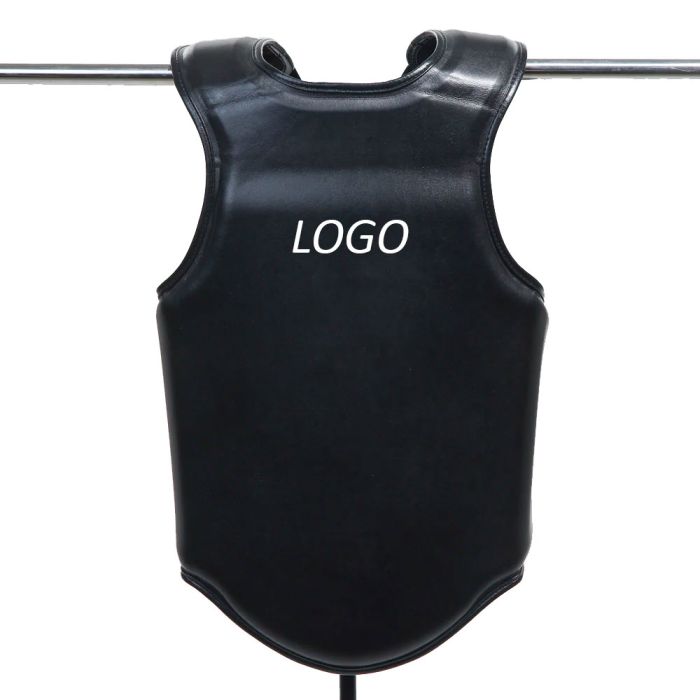Custom Chest Guard
A chest guard with padding is a vital piece of protective gear designed to shield the torso from impacts and injuries during various sports and activities, including martial arts, boxing, football, and more. This specialized protective equipment is essential for athletes who engage in high-contact sports, as it provides crucial protection to vital organs such as the heart, lungs, and ribs, allowing them to train and compete with confidence.
The primary feature of a chest guard with padding is its robust cushioning system, typically made from high-density foam or gel-like materials that absorb and disperse the force of strikes or impacts. This padding is strategically placed to cover critical areas of the chest, providing comprehensive protection without sacrificing mobility. Athletes can move freely, execute techniques, and engage in their sport without feeling restricted by bulky or cumbersome gear.
Durability is another key aspect of chest guards with padding. These guards often feature an outer shell made from tough, abrasion-resistant materials such as synthetic leather or durable nylon, ensuring that the guard withstands the rigors of intense training and competition. This combination of padded protection and resilient outer materials makes these guards suitable for repeated use, providing long-lasting reliability.
Comfort is paramount in the design of a chest guard with padding. Many models come with adjustable straps, hook-and-loop fasteners, or elastic bands that allow for a customized fit, ensuring the guard stays securely in place during dynamic movements. Additionally, many designs incorporate breathable fabrics or ventilation systems to enhance airflow, helping to keep the athlete cool and dry during high-energy activities.
In summary, a chest guard with padding is an essential investment for athletes engaged in high-contact sports. It provides critical protection to the torso while ensuring comfort, mobility, and durability. With a well-designed chest guard, athletes can focus on their performance, enhancing their training and competition experiences while minimizing the risk of injury to their chest and vital organs.
Reviews
You have no items in your shopping cart




